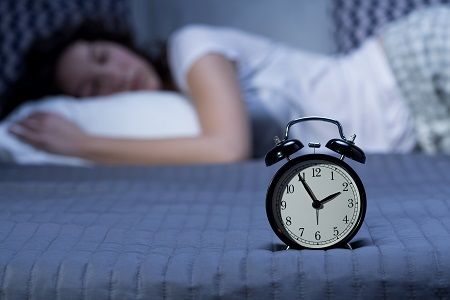Insomnia Is a Serious Comorbidity for People with Chronic Pain
Many patients with a variety of chronic pain conditions think negatively about how it will affect their sleep – which ends up leading to worse sleep outcomes. A study from the University of Warwick in England shows just how powerful these negative thoughts are.

Many patients with a variety of chronic pain conditions think negatively about how it will affect their sleep — which ends up leading to worse sleep outcomes. A study from the University of Warwick in England shows just how powerful these negative thoughts are.
“Current psychological treatments for chronic pain have mostly focused on pain management and a lesser emphasis on sleep, but there is a recent interest in developing therapies to tackle both pain and sleep problems simultaneously,” Esther Afolalu, a PhD researcher at the University of Warwick, said in a news release.
Researchers from the Sleep and Pain Lab in the Department of Psychology at the school created the Pain-Related Beliefs and Attitudes about Sleep (PBAS) scale to measure how pain and sleep beliefs impact one another. The 10-item scale is the first of its kind to explore the correlation between the two factors.
A total of 137 patients with chronic pain and comorbid insomnia were given the PBAS scale. The cohort was divided to test four sections of the scale: psychometric properties (137 patients), generalizability (62 patients), test-retest reliability (26 patients), and sensitivity to treatment (20 patients).
“All participants completed the PBAS together with validated measures of pain interference, insomnia severity, and cognitive-behavioral processes hypothesized to underpin insomnia,” the team wrote in the Journal of Clinical Sleep Medicine.
The PBAS scale was reliable and consistent, and it successfully predicted pain interference and insomnia severity. According to the researchers, the results suggested a two-factor solution representing beliefs about “pain as the primary cause of insomnia” and the “inevitable consequences of insomnia on pain and coping.” The scores were also linked to scores from the Insomnia Severity Index (ISI) scale, Dysfunctional Beliefs and Attitudes about Sleep (DBAS) scale, and the Anxiety and Preoccupation about Sleep Questionnaire (APSQ).
Furthermore, patients who received cognitive-behavioral therapy for pain and insomnia resulted in reduced PBAS scores.
“Thoughts can have direct and/or indirect impact on our emotion, behavior, and even physiology,” said senior author, Nicole Tang, PhD. “The new scale, PBAS, is developed to help us pick up those beliefs that have a potential role in worsening the insomnia and pain experience.”
Related Coverage:
NIH Pushes Nondrug Pain Relief Approaches
Not All Doctors Are on Board with New CDC Opioid Guidelines
Treating Pain Alone Isn’t Enough for Someone with Psychological Symptoms